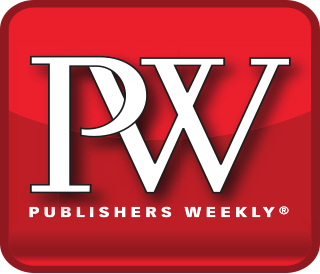Related Research Articles
An author is the writer of a book, article, play, mostly written work. A broader definition of the word "author" states:

Editing is the process of selecting and preparing written, photographic, visual, audible, or cinematic material used by a person or an entity to convey a message or information. The editing process can involve correction, condensation, organisation, and many other modifications performed with an intention of producing a correct, consistent, accurate and complete piece of work.
Random House is an American book publisher and the largest general-interest paperback publisher in the world. The company has several independently managed subsidiaries around the world. It is part of Penguin Random House, which is owned by German media conglomerate Bertelsmann.
Content management (CM) is a set of processes and technologies that supports the collection, managing, and publishing of information in any form or medium. When stored and accessed via computers, this information may be more specifically referred to as digital content, or simply as content.
Copy editing is the process of revising written material (copy) to improve readability and fitness, as well as ensuring that text is free of grammatical and factual errors. The Chicago Manual of Style states that manuscript editing encompasses "simple mechanical corrections through sentence-level interventions to substantial remedial work on literary style and clarity, disorganized passages, baggy prose, muddled tables and figures, and the like ". In the context of print publication, copy editing is done before typesetting and again before proofreading. Outside traditional book and journal publishing, the term copy editing is used more broadly, and is sometimes referred to as proofreading, or the term copy editing sometimes includes additional tasks.
In publishing, advertising and related fields, copy refers to written material, in contrast to photographs or other elements of layout, in books, magazines, newspapers and advertising.
A financial analyst is a professional, undertaking financial analysis for external or internal clients as a core feature of the job. The role may specifically be titled securities analyst, research analyst, equity analyst, investment analyst, or ratings analyst. The job title is a broad one: in banking, and industry more generally, various other analyst-roles cover financial management and (credit) risk management, as opposed to focusing on investments and valuation; these are also discussed in this article.

Routledge is a British multinational publisher. It was founded in 1836 by George Routledge, and specialises in providing academic books, journals and online resources in the fields of the humanities, behavioural science, education, law, and social science. The company publishes approximately 1,800 journals and 5,000 new books each year and their backlist encompasses over 70,000 titles. Routledge is claimed to be the largest global academic publisher within humanities and social sciences.

Simon & Schuster is an American publishing company and a subsidiary of Paramount Global. It was founded in New York City on January 2, 1924 by Richard L. Simon and M. Lincoln Schuster. As of 2016, Simon & Schuster was the third largest publisher in the United States, publishing 2,000 titles annually under 35 different imprints.

Publishers Weekly (PW) is an American weekly trade news magazine targeted at publishers, librarians, booksellers, and literary agents. Published continuously since 1872, it has carried the tagline, "The International News Magazine of Book Publishing and Bookselling". With 51 issues a year, the emphasis today is on book reviews.
In academia and librarianship, conference proceedings is a collection of academic papers published in the context of an academic conference or workshop. Conference proceedings typically contain the contributions made by researchers at the conference. They are the written record of the work that is presented to fellow researchers. In many fields, they are published as supplements to academic journals; in some, they are considered the main dissemination route; in others they may be considered grey literature. They are usually distributed in printed or electronic volumes, either before the conference opens or after it has closed.
A talent manager is an individual who guides the professional career of artists in the entertainment industry. The responsibility of the talent manager is to oversee the day-to-day business affairs of an artist; advise and counsel talent concerning professional matters, long-term plans and personal decisions which may affect their career.
The chief risk officer (CRO) or chief risk management officer (CRMO) or chief risk and compliance officer (CRCO) of a firm or corporation is the executive accountable for enabling the efficient and effective governance of significant risks, and related opportunities, to a business and its various segments. Risks are commonly categorized as strategic, reputational, operational, financial, or compliance-related. CROs are accountable to the Executive Committee and The Board for enabling the business to balance risk and reward. In more complex organizations, they are generally responsible for coordinating the organization's Enterprise Risk Management (ERM) approach. The CRO is responsible for assessing and mitigating significant competitive, regulatory, and technological threats to a firm's capital and earnings. The CRO roles and responsibilities vary depending on the size of the organization and industry. The CRO works to ensure that the firm is compliant with government regulations, such as Sarbanes–Oxley, and reviews factors that could negatively affect investments. Typically, the CRO is responsible for the firm's risk management operations, including managing, identifying, evaluating, reporting and overseeing the firm's risks externally and internally to the organization and works diligently with senior management such as chief executive officer and chief financial officer.
A managing editor (ME) is a senior member of a publication's management team. Typically, the managing editor reports directly to the editor-in-chief and oversees all aspects of the publication.

A contributing editor is a newspaper, magazine or online job title that varies in its responsibilities. Often, but not always, a contributing editor is a "high-end" freelancer, consultant, or expert who has proven ability and has readership draw. This contributing editor regularly contributes articles to the publication but does not always edit articles. Here the title "editor" implies a certain level of prestige rather than a more traditional editing role. In other instances, however, a contributing editor may oversee projects or specific aspects of a publication and have more regular editing duties. At smaller magazines, the title can imply a staff member with regular writing responsibility and some editorial duties. Magazines, websites, books, sources, and journals use contributing editors.

A gatekeeper is a person who controls access to something, for example via a city gate or bouncer, or more abstractly, controls who is granted access to a category or status. Gatekeepers assess who is "in or out", in the classic words of management scholar Kurt Lewin.
A chief procurement officer (CPO) undertakes an executive role within an enterprise, focusing on sourcing, procurement, and supply management.

The term director is a title given to the senior management staff of businesses and other large organizations.
Developmental editing is a form of writing support that comes into play before or during the production of a publishable manuscript, in both fiction and non-fiction writing. As explained by Scott Norton in his book Developmental editing: a handbook for freelancers, authors, and publishers, developmental editing involves "significant structuring or restructuring of a manuscript's discourse". Developmental editors are a type of language professional.

Clarke, Irwin & Company was a Canadian publishing house based in Toronto, Ontario. Established in 1930, it was purchased by Thomas Nelson Publishing in 2002. The company published works by prominent Canadian authors, artists, and poets, including Robertson Davies, Emily Carr, A.Y. Jackson, Adele Wiseman, Timothy Findley, and Alden Nowlan. The company was also known as a producer of educational works and textbooks.
References
The standard work on the subject is Gill Davies' Book Commissioning and Acquisition (Routledge).